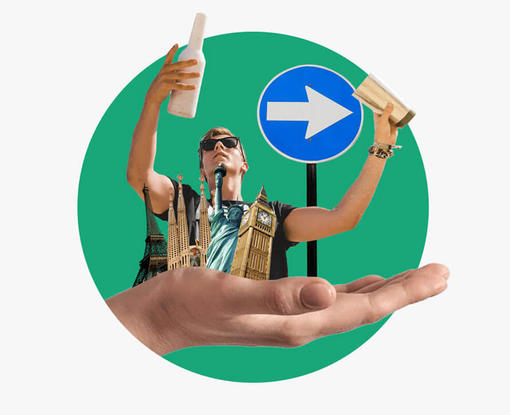If you’re a bartender or business owner in the bar scene, chances are you’ve heard of bartender insurance at least once or twice. But what exactly is it and what are the benefits of having it? Read on to discover all this and more…
What is bartender insurance?

Bartender insurance is a specific type of insurance that protects servers or sellers of alcohol such as bartenders or businesses from third-party liability claims which arise from incidents involving alcohol.
While general liability insurance coverage for establishments like bars and taverns includes something called "host liquor liability coverage" in their policies, this is not enough to protect against certain claim scenarios.
What is host liquor liability insurance?
Host liability insurance is a type of insurance for businesses that is generally included in general liability, specifically for liquor-related incidents and third-party injuries/ property damage.
However, host liquor liability insurance must be taken with a grain of salt as it does not cover the full spectrum of liability claims that can arise. Therefore, It is always better to purchase bartender liability insurance separately.
NOTE: ‘Bartender insurance coverage’ is also known as ‘liquor liability insurance coverage’, as they both describe a type of liability coverage for sellers of alcohol. “Dram shop” insurance is also a term used to refer to the same (more on that later).
Where is bartender insurance required?

Probably one of the most pressing questions on everyone’s mind: in which states is possessing bartender liability insurance required? Well, as is customary in the US, laws on liquor liability vary from state to state.
These laws are called “dram shop laws”. They govern whether or not a business is to be held liable for serving or selling alcohol to a person that later causes bodily injury to another or is the cause of property damage.
Currently, there are only 8 states that do not have these laws in place. These are Delaware, Kansas, Louisiana, Maryland, Nebraska, Nevada, South Dakota and Virginia. The other 42 all have some type of dram shop laws defining liability, with each of them containing their own previously defined nuances.
So, while it is technically not a requirement to have liquor liability insurance, the existence of a law in the state where the business is located makes the bartender and owner much more liable should an accident occur.
Additionally, in some states with stricter dram shop laws, a liquor license may not be issued unless the business owner can provide proof that liquor liability insurance has been purchased.
How much does bartender insurance cost?
The average bartender insurance cost for one year starts at around $270 and can go up as high as $2000 or more.
As with most insurance plans, liquor liability insurance is available at a range of prices depending on how much coverage is desired.
Pricing is determined by several factors such as business size, type of establishment, percentage of alcohol sales, hours of operation and state laws.
For example, full-scale bars will pay more for liquor liability insurance than restaurants that have smaller bars or retail stores that may only involve alcohol in their business on occasion. Another factor could be claims history, as businesses with previous liquor liability claims may be quoted with a higher yearly rate than those with clean records.
The good news? Finding the best bartender insurance nowadays is a relatively painless process that is simple and fast. In fact, many providers are available for free quotes at just the click of a button.
Do independent bartenders need bartender insurance?

Well, that also depends. Freelance bartenders that work independently and aren’t contracted by a bar establishment or restaurant are special cases.
These are your bartenders that are hired to serve guests at weddings, festivals, pop-ups, corporate events and everything in between.
Sometimes referred to as “mobile bartenders”, these workers must purchase their own insurance if they wish to be covered in case of an incident.
Since they are not employed under an establishment who is responsible for the purchase of general liability insurance and liquor liability insurance, this responsibility falls on them.
The price of bartender liability insurance for independent professionals can vary greatly, as sometimes the bartender may choose to purchase coverage for a one-off event rather than an entire year. This mostly depends on how often their cocktail-making services are needed and the scale of each event.
What does bartender insurance cover?
Of course, this will depend on how much you’re interested in paying, but most general bartender insurance plans cover the following:
1) Third-party bodily injury- if a customer you or your business served alcohol to causes physical harm to another person
2) Property damage- if a customer you or your business served damages or destroys someone’s property or belongings
3) Drunk driving- if a customer you or your business served is the cause of a motor vehicle accident that results in bodily injury
Additionally, in the event that your business is sued because of an alcohol-related incident, liquor liability insurance will ensure that your out-of-pocket cost is lower in these areas:
- Legal costs
- Medical costs
- Settlements
The bottom line: Is bartender insurance worth it?
Yes, bartender insurance is absolutely worth it. While bars are places people go to socialize with friends and drink tasty cocktails, there’s no doubt that the presence of alcohol takes the risk value up a notch.
Even if you’re a highly skilled bartender with years of experience with one of our bartender course certificates up your sleeve, you don’t have control of unplanned events that go sideways. That's why liability insurance for bartenders is a great add-on to general liability coverage.
Think of it as investing in your peace of mind!
